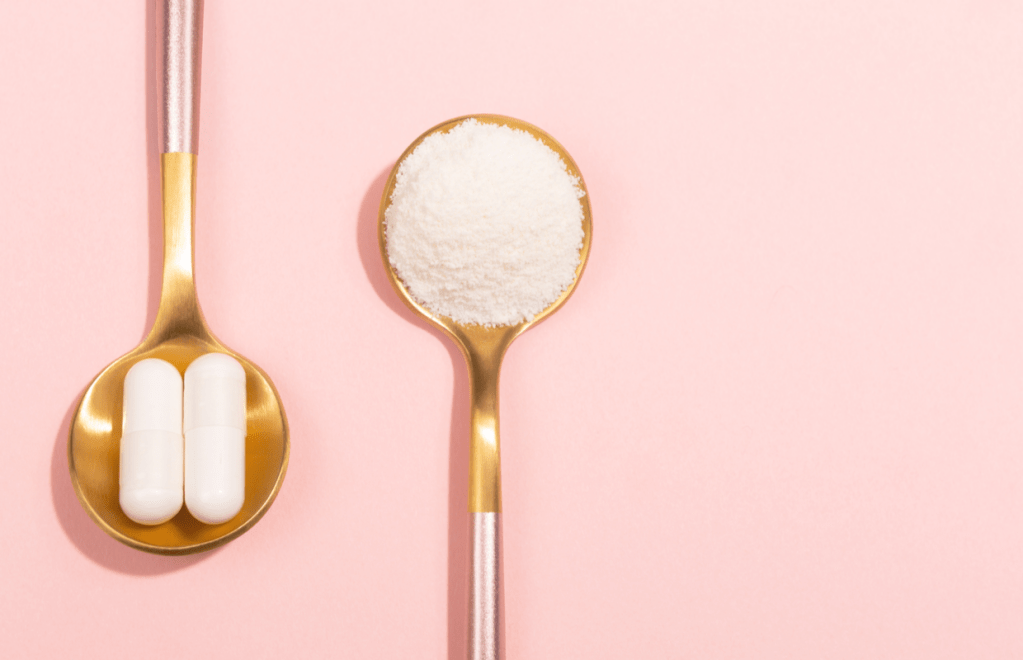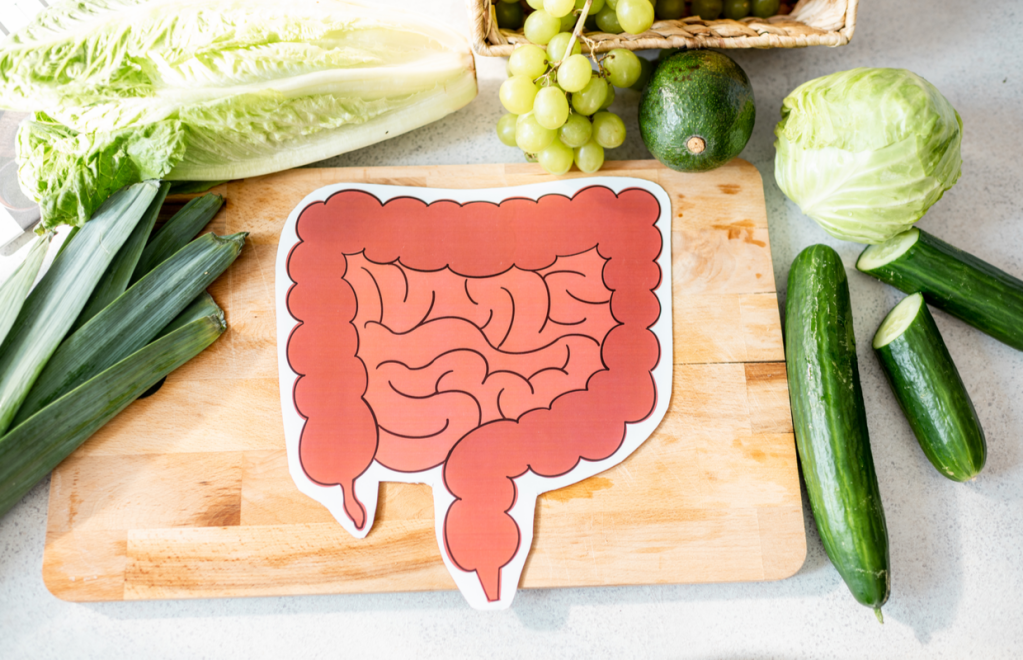How to improve your gut health and microbiome
Nutrition columnist Eve Kalinik explains why it's crucial to look after your gut microbiome, before explaining how to improve your gut health...

The latest research has shown that our gut is not only responsible for our immunity, but also our mental health, disease prevention and longevity. There’s no escaping that gut feeling, argues leading nutritional therapist and Psychologies nutrition columnist Eve Kalinik. Here she explains how to improve your gut health…
How many of us can honestly say we have never experienced any kind of digestive issues?
Virtually none. In fact, even if you’re one of those lucky few, we all connect with the feeling of butterflies in the stomach and that nauseous-nervous feeling. Phrases such as ‘go with your gut’ are common everyday expressions and, as we’re increasingly learning, are based on more than instinct – this is now the stuff of fact.
The rise of chronic digestive issues
In the UK, chronic digestive issues are by far one of the most common physical complaints. I can vouch for that as a nutritional therapist. The majority of my clients come to me with some level of gastrointestinal imbalance. Most of those who don’t have a specific diagnosed condition are often not given any explanation for their discomfort.
Symptoms frequently include bloating, constipation, urgency and pain that many people will have been experiencing for years and years without any alleviation or discernible cause. But where does that leave someone who feels ongoing pain, distress or sheer confusion? Where do they get the answers they need?
Well, the answer is very likely located within one’s own gut – and, more specifically, the immense and complex microbial population that resides in the digestive system, which has become the focus of the latest pioneering research.

The origins of research into gut health
Gut health is not new, though. Greek physician Hippocrates recognised this over 2,000 years ago when he declared: ‘All disease begins in the gut’. Given that modern-day lifestyles include lots of factors that may compromise the gut, we can begin to realise why a struggling digestive system is such a broad-reaching problem.
Variables such as refined and processed foods, excess sugar, lack of sleep, medication and stress all take their toll on how this functions. How many of those are you ticking? Quite a few I would imagine.
There are, ostensibly, many kinds of medications to alleviate our myriad digestive symptoms – from acid reflux to constipation – but the irony is that these drugs can often disrupt the complex community of bacteria that makes up your gut ecosystem and hence create a vicious circle. It’s really about delving much deeper to find out what is bugging you. Literally. Let’s just put this into perspective…
What is the gut microbiome?
Your gut flora (or to put it more accurately, gut microbiome) consists of hundreds of trillions of micro-organisms from anywhere between 400-500 species, and for every human cell you have around 10 bacteria. In the gut alone that covers roughly the surface area of a tennis court (and these things are microscopic!).
Kind of incomprehensible really, because this makes us essentially more bacteria than human being. That’s why the title of Alanna Collen’s seminal book on health, 10% Human, is so fitting and why, in her words, we all need to ‘cherish our personal colony of microbes’. But, the point is, most of us don’t.
The link between gut health and chronic illnesses
The gastrointestinal system contains almost 70 per cent of the body’s whole immune system. It is also intrinsically linked with the nervous system. Because of this, an unhealthy or unbalanced gut is considered among many acclaimed health professionals to be one of the fundamental reasons for the alarming rise of chronic diseases such as obesity, allergies, arthritis, diabetes and depression.
In his book, The Disease Delusion, Dr Jeffrey Bland writes, ‘The gut is the starting point for an awful lot of chronic illnesses that seem to have nothing to do with the stomach; it’s the launch pad for numerous symptoms affecting parts of the body far from the gastrointestinal area’. And it’s this intricate balance of bacteria that has such a fundamental role to play in so many of these.

Good verses bad bacteria: what are probiotics?
You may already be familiar with the terms ‘friendly bacteria’ or ‘probiotics’, but what do they actually mean and why do we need them? Essentially, probiotic means pro-life, and in a healthy gut it’s these microbes that should really be the ones to thrive.
There are many different types of probiotics, each with their unique benefits, but predominantly these come from two major strains: lactobacillus and bifidobacterium. In an ideal scenario, they sit alongside what are known as symbiotic bacteria that have neither positive nor negative influences but together create a harmonious environment. In reality, however, the reverse is often the case.
Many of us have a tendency to cultivate fewer of the good bacteria while possessing an over-population of what might be defined as potentially pathogenic bugs. This is where the problems start.
Take the omnipresent use of antibiotics for instance – of course they have been revolutionary from a medical point of view, but they are also entirely non-discerning in the way they kill off microbes, which means destroying the good as well as the bad and the ugly.
With recurrent use, antibiotics can leave the terrain of the gut wide open to opportunistic bacteria and yeasts that, over time, can proliferate and may have a wider-reaching impact on our health and wellbeing.
Why is it important to look after your gut health?
Having a healthy gut microbiome is essential for many different reasons. The first and most obvious reason is the direct effect on digestive processes, including assimilation of food, promoting elimination and managing pH levels within the stomach, but this complex community influences so much more beyond this.
Our gut flora’s impact on our immune system is probably one of the most significantly documented. The ability to switch on and manage activity of immune cell tissue in the gut, known as GALT (gut-associated lymphoid tissue), and fight off potential pathogens, yeasts, viruses and parasites, makes them an intrinsic part of our survival.
There is some body of evidence that is now looking at related digestive auto-immune conditions. This includes Crohn’s disease and ulcerative colitis, which experts are linking to specific strains of bacteria. The health of our gut also certainly has an impact on allergies, which are becoming ever more prevalent in our society.
Furthermore, hormones such as oestrogen, testosterone, thyroxine and those regulating appetite are also conjugated or converted in the gut. So, in many ways our microbiome helps us in maintaining weight, mood and reproductive processes. Incredible stuff.

The gut-brain connection
Many are surprised to learn that 95 per cent of our serotonin, which is nicknamed the ‘happy hormone’, because it relates to a positive state of mind, is created in the gut. It is here that you will also find billions of neurons and all kinds of chemical messengers that are very similar to those found in the brain.
This has compelling implications for how we might look at treatment protocols for something we thought was ‘all in the mind’. Recent fascinating research has further identified that some of these microbes can communicate directly with neurotransmitter and cognitive functioning. So, you can see how gut health has a much wider impact than was previously believed.
Many pioneering scientists and doctors have dubbed our stomach the ‘second brain’. This gives ‘food for thought’ a whole new meaning.
How to improve your gut health
So, how can we improve our gut health? Here are 5 easy ways to nurture your gut microbiome…
1. Remove or reduce foods in your diet that negatively impact the gut
A good place to start to improve your gut health is taking out variables that can have a negative influence. This means less of the white, fried and dyed foods. This includes refined sugar and all its derivatives – from sweet white carbohydrates to fizzy drinks.
Alcohol consumption needs to be mindful, too. This is because it feeds the ‘bad’ bacteria in the gut that you don’t want over-proliferating.
2. Add fermented foods to your diet to support your gut microbiome
After you remove the foods from your diet that are ‘feeding’ the bad bacteria, it’s important to add in some foods that nurture the beneficial guys. This means plenty of fermented foods that support natural colonisation of the gut microbiome.
As Sandor Ellix Katz, author of The Art Of Fermentation eloquently puts it: ‘This means finding ways to become aware of and connected to the other forms of life that are around us and that constitute our food.’
The probiotic foods that were once prevalent in our diets should really be part of our daily routine. Things like kefir, sauerkraut, miso, tempeh and pickles not only taste delicious but have been used for centuries to promote health. In a world full of junk, convenience and highly processed diets, we have simply forgotten about them.

3. Eat colourful, fibre-rich vegetables and drink water
Having a plate packed with plenty of colourful, nutrient-dense, fibre-rich vegetables is also a critical step in improving your gut health. This is because eating a wide range of vegetables can diversify your gut microbiome. Plus, fibre is essential for keeping your digestive system running smoothly.
4. Drink plenty of water to improve your gut health
Good hydration is key in contributing to keep these beneficial bacteria well-nourished and able to perform all of their vital processes. Be sure to drink water throughout the day, and cut down on caffeinated drinks as these can actually dehydrate you due to their diuretic properties.
5. Chew your food thoroughly and eat mindfully
Moreover, chewing thoroughly and eating mindfully is something we just don’t do any more. Most of us eat too quickly. This places an extra burden on the digestive system and can have a large impact on these microbes and the way the gut functions.
With so much research unfolding in this area, being able to fully comprehend how much our gut microbiome affects overall health is a real possibility. We’re just beginning to understand how diverse and astonishing the role our gut microflora plays is.
As science writer Jon Turney says, ‘We are not just organisms, but superorganisms – amazing feats of biological balance that carry a secret cargo.’ What will that mean for you? Only your gut knows – and you’d be fool to ignore its instinct.
For more from Eve, visit evekalinik.com.








